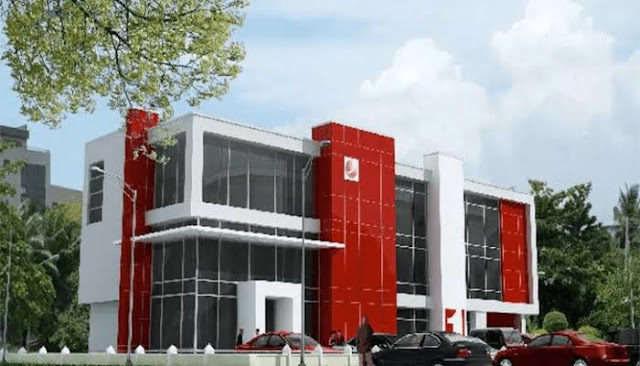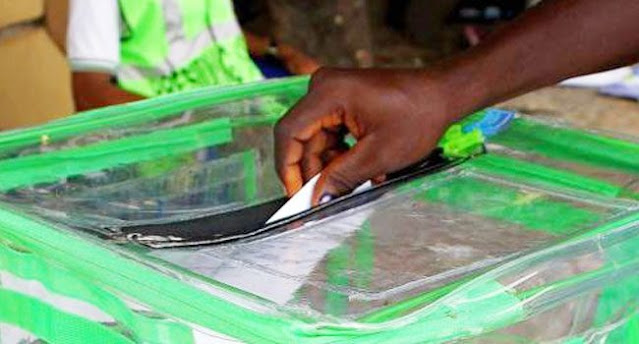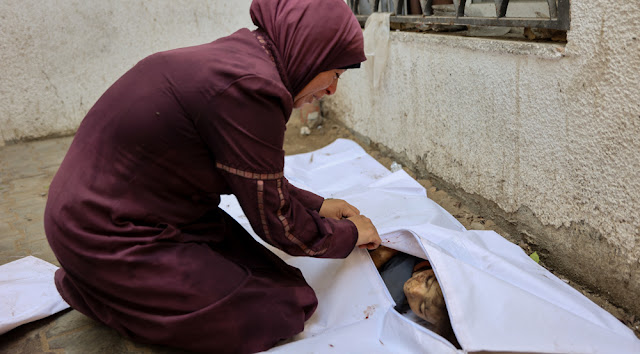In a remarkable milestone for Nigeria’s financial and technological sectors, Sterling Bank Limited has celebrated the first anniversary of its revolutionary core banking system, SeaBaas, which has processed over two billion transactions with zero downtime since its launch in September 2024. This achievement, announced on September 3, 2025, underscores Sterling Bank’s position as a trailblazer in African financial technology and a champion of indigenous innovation. The SeaBaas platform, designed and built entirely in Africa, has set new benchmarks for scale, efficiency, and reliability, marking a significant step toward economic self-sufficiency and technological advancement on the continent.
A New Era for African Banking
The Niger Delta, comprising nine states in Nigeria—Abia, Akwa Ibom, Bayelsa, Cross River, Delta, Edo, Imo, Ondo, and Rivers—is a region of immense economic importance, contributing over 80% of Nigeria’s foreign exchange earnings through its oil and gas resources. However, the financial sector in Nigeria, and indeed across Africa, has long been reliant on foreign-built core banking systems, which come with high licensing fees, rigid architectures, and exposure to foreign exchange volatility. These challenges have constrained innovation, increased operational costs, and limited financial inclusion, particularly for underserved populations.
Sterling Bank’s migration to SeaBaas, an indigenous core banking system developed in collaboration with Nigerian technology firms and the bank’s in-house engineering team, represents a bold departure from this dependency. Launched in September 2024, SeaBaas has not only transformed Sterling Bank’s operations but also positioned Nigeria as a leader in digital banking innovation. The platform’s success is a testament to the potential of African ingenuity to address local challenges and compete on a global stage.
The Genesis of SeaBaas
SeaBaas, an acronym for Secure, Efficient, Agile Banking as a Service, was conceived as a response to the limitations of legacy core banking systems like Temenos T24, which Sterling Bank previously used. These foreign systems, while robust, were not tailored to the unique needs of African markets, where high transaction volumes, diverse customer bases, and economic volatility demand flexible and cost-effective solutions. The decision to develop SeaBaas was driven by Sterling Bank’s commitment to reducing operational costs, enhancing customer experience, and fostering financial inclusion.
The platform was designed by Sterling Bank and developed in collaboration with a consortium of Nigerian technology firms, including Peerless Software, Bazara Technologies, Revent Technologies, and AppQuest Solutions, alongside professional services from KPMG and Sterling’s in-house engineering talent. This collaborative approach ensured that SeaBaas was built with a deep understanding of the African financial landscape, incorporating features such as microservices, APIs, hybrid cloud architecture, and artificial intelligence (AI) to deliver a seamless and scalable banking experience.
The migration to SeaBaas was not without challenges. In August 2024, when Sterling Bank announced the transition, over three million customers experienced temporary service disruptions, sparking frustration on social media platforms. However, the bank quickly addressed these issues, restoring services in phases and earning praise for its transparency and commitment to customer satisfaction. By September 2024, SeaBaas was fully operational, marking the beginning of a transformative journey for Sterling Bank and its customers.
Unprecedented Performance Metrics
In its first year, SeaBaas has achieved remarkable results, processing over two billion transactions with zero downtime across 365 days of service. This level of reliability is unprecedented in the African banking sector, where system downtimes have historically frustrated customers and disrupted business operations. The platform’s resilience has positioned SeaBaas as one of the most dependable financial systems on the continent, earning accolades from industry experts and customers alike.
Beyond its reliability, SeaBaas has delivered significant improvements in efficiency. The system has reduced processing times by approximately 60%, enabling faster transactions and a smoother customer experience. This efficiency has driven a 66% surge in customer adoption, with Sterling Bank reporting record-breaking customer acquisition numbers for eight consecutive months. According to Abubakar Suleiman, Chief Executive Officer of Sterling Bank, “Transaction volumes are soaring while our acquisition—the number of new customers choosing Sterling—has broken records eight months in a row.”
SeaBaas powers Sterling Bank’s digital ecosystem, including platforms such as OneBank, SterlingPro, Switch, and Specta, as well as fintech integrations, agent banking networks, and third-party solutions. This interconnected ecosystem has enabled Sterling to offer a wide range of financial services, from retail banking to automated lending and digital payments, all tailored to the needs of Nigerian consumers and businesses.
Economic and Social Impact
The success of SeaBaas extends beyond technological achievement, delivering tangible economic and social benefits. One of the most significant outcomes is the cost savings generated by the platform. By eliminating reliance on foreign core banking systems, Sterling Bank has saved millions of dollars in licensing and maintenance fees. Peerless Software, a key partner in the development of SeaBaas, estimates that the platform has contributed to over $10 million in operational savings for Sterling and its customers. These savings have freed up resources for reinvestment in innovation, customer service, and community development initiatives.
SeaBaas has also accelerated financial inclusion across Nigeria’s economy. By lowering the cost-to-serve, the platform enables banks to profitably offer accounts and products to customers at the bottom of the pyramid, a demographic often excluded from traditional banking services. The platform’s unified customer data model provides a real-time, 360-degree view of each client, enabling personalized financial products that were once prohibitively complex. This has opened up new opportunities for millions of Nigerians, particularly in underserved rural and semi-urban areas.
The platform’s impact on financial inclusion aligns with Nigeria’s national goals of expanding access to financial services, as outlined in the Central Bank of Nigeria’s National Financial Inclusion Strategy. By leveraging local technology, SeaBaas reduces the barriers to entry for low-income individuals and small businesses, fostering entrepreneurship and economic empowerment.
A Model of African Innovation
SeaBaas represents more than a technological breakthrough; it is a symbol of African ingenuity and ambition. As Abubakar Suleiman noted in his statement, “SeaBaas, to us, represents a proof of possibility. It shows that Africa can build world-class technology, solve complex problems locally, and scale globally.” This sentiment resonates across the continent, where reliance on foreign technology has often been seen as a barrier to self-sufficiency.
The development of SeaBaas involved a collaborative effort that showcased Nigeria’s growing tech ecosystem. Peerless Software, Bazara Technologies, and other partners brought cutting-edge expertise in software development, cloud computing, and AI, while Sterling Bank’s in-house team ensured that the platform was tailored to the bank’s operational needs. The involvement of KPMG provided strategic and regulatory insights, ensuring compliance with Nigeria’s evolving financial standards.
The platform’s architecture is designed to be future-proof, with features such as microservices and multi-cloud capabilities that allow for rapid innovation and scalability. This flexibility positions SeaBaas to support not only Sterling Bank but also other financial institutions across Africa. Peerless Software has already begun rolling out complementary products, such as Mizan, a core banking application for Islamic finance, and Kusala, a workflow automation tool, signaling the potential for SeaBaas to become a cornerstone of Africa’s financial technology stack.
Challenges and Lessons Learned
The journey to SeaBaas was not without its hurdles. The initial migration in August 2024 caused significant disruptions, with customers unable to access banking services for several days. Social media platforms, particularly X, were flooded with complaints, with one customer lamenting, “I’ve been unable to open the OneBank app for over five days.” These challenges highlighted the complexity and risk of core banking migrations, which a software expert described as “time-consuming, expensive, and risky.”
Sterling Bank’s response to these challenges was swift and transparent. The bank communicated regularly with customers, providing updates on the migration process and restoring services in phases. By addressing implementation issues promptly, Sterling mitigated the impact on customer trust and demonstrated its commitment to excellence. This experience has provided valuable lessons for other African banks considering similar migrations, emphasizing the importance of robust planning, stakeholder engagement, and contingency measures.
Another challenge is the need to scale SeaBaas to serve a broader market. While the platform has proven its capabilities with Sterling Bank and ARM Pensions, Peerless Software aims to power ten or more financial institutions in its second year. This ambitious goal will require significant investment in infrastructure, talent, and regional expansion, as well as partnerships with regulators and industry players to ensure widespread adoption.
Stakeholder Perspectives
The success of SeaBaas has garnered praise from a wide range of stakeholders. Industry experts have lauded the platform as a game-changer for African banking, with one analyst describing it as “a flagship example of African-built financial technology.” The platform’s ability to process billions of transactions while maintaining zero downtime has set a new standard for reliability, earning Sterling Bank recognition as Africa’s most agile company and the number one workplace in Nigeria’s banking industry.
Community leaders in the Niger Delta, where Sterling Bank has a significant presence, have also welcomed the initiative. Chief Emmanuel Okoye, a traditional ruler from Rivers State, noted that SeaBaas’s cost savings and focus on financial inclusion could have a transformative impact on the region’s economy. “This is what we need—technology that works for us and empowers our people,” he said.
Private sector representatives have highlighted the platform’s potential to bridge the skills gap in Nigeria’s tech ecosystem. Mrs. Aisha Mohammed, a Lagos-based fintech entrepreneur, described SeaBaas as “a wake-up call for African startups to dream bigger.” She noted that the platform’s success could inspire a new generation of innovators to develop solutions tailored to the continent’s unique challenges.
The Broader Vision of Sterling Bank
Sterling Bank’s adoption of SeaBaas is part of a broader strategy to position itself as a leader in digital banking and innovation. The bank has a history of pioneering market-leading solutions, including Nigeria’s first contactless prepaid transport card (FarePay) and the first automated retail lending solution (Specta). It has also partnered with state governments to deploy innovative projects, such as a drone delivery system for pharmaceutical consumables in Kaduna.
The bank’s commitment to innovation extends beyond technology. In April 2025, Sterling Bank announced a zero-charge policy on mobile and online transfers, sparking a national debate about bank charges and compassionate capitalism. This move, praised by economic analysts like Muda Yusuf of the Centre for the Promotion of Private Enterprise, reflects Sterling’s focus on customer-centric policies and sustainable business practices.
Looking Ahead: A Blueprint for Africa
As Sterling Bank celebrates the first anniversary of SeaBaas, the platform’s success offers a blueprint for other African financial institutions. By reducing reliance on foreign systems, SeaBaas demonstrates that Africa can develop enterprise-grade technology that rivals global standards. The platform’s scalability, cost-effectiveness, and focus on inclusion position it to transform not only Nigeria’s financial sector but also the broader African market.
Looking forward, Sterling Bank and Peerless Software plan to expand SeaBaas’s capabilities, tackling bold challenges such as cross-border payments, digital lending, and blockchain integration. The intellectual property underpinning SeaBaas will be made available to partners across the continent, fostering collaboration and innovation. “This is only the beginning,” Suleiman emphasized. “SeaBaas reminds us that when we dare to dream boldly and build courageously, there is no limit to what we can achieve in Africa.”
For the millions of customers served by SeaBaas, the platform represents more than a banking system—it is a symbol of empowerment, resilience, and progress. As Nigeria and Africa continue to navigate the complexities of a digital economy, SeaBaas stands as a beacon of what is possible when local talent, vision, and technology converge to create solutions that transform lives.






